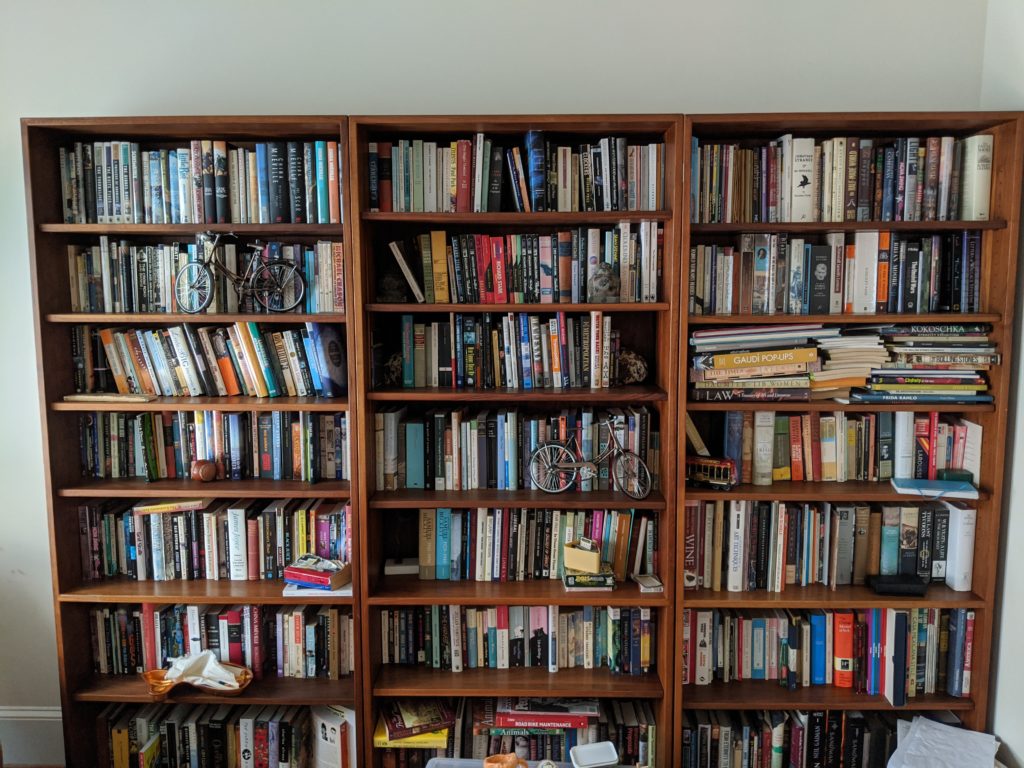So, I (presumably) got the thing but of course there is no testing in the UK for people who need it, let alone assorted members of the general public like myself who’d just like to know if they’re through the worst. Then I was great for a couple of days, then really, really not so great, and that not-so-greatness has lingered. Net result; cancelling and foregoing various paid work things, letting people down, and not doing my central ‘life’s work’ things. Which is trying, but I am nonetheless going boing boing boing on middle class lockdown bingo. Growing tomatoes. Returning to piano-playing. Complaining about joggers. Starting and not finishing a potential longread about Parfit, past and future selves and why we ignored the letters from our future that China and Italy were kind enough to despatch. Also, tweeting too goddamn much. Eating too goddamn much. (now the food shortages have eased and I can also leave the house to buy some – I quarantined for 2 weeks, but the UK guidance seems to be only 7 days after first symptoms. In something that lasts a lot longer, that seems wrong?) Also comfort-reading.
I was 1/3 through Anna Burns’ Milkman when we went into lockdown about a week before the UK’s official lockdown. Found almost immediately I couldn’t manage it any more. Then tried Tim Maugham’s near-future post-apocalyptic Infinite Detail. Ha! past self who thought you could still read something like that for general interest! you were so so wrong. I don’t remember why exactly, but my thoughts turned to Northern Lights; specifically the Everyman edition of the His Dark Materials trilogy I bought for Ed to bring on his last tour and which he left at home. (His interest piqued to see me reading ‘his’ book, and read the dedication to him, he then said it was just the book he should have brought but only not having done so does he now understand his former self and how he has changed and really should have?)
Then, out on a neighbourhood walk a couple of weeks ago, I knocked on the door of a friend and retreated back to the footpath. Grey area activity, this, but the conversation was short and no sunbathing took place. My friend and her two children came out and Milo whinnied through the gate to be let in to raid their cat bowl. We ignored him and got quickly to book-chat, HDM, and made a plan for a HDM book club online the following night. Invitations went out. (I am that person who’s refused to use whatsapp since the day facebook bought it, but for work reasons have used zoom for years. there is no security or privacy logic to this.) 7pm the next night, those two kids, my two Washington nephews, two of my sisters, Ed and me all got on zoom for a proper conversation that was Not Work and also not ‘well, nothing much happened today, let me tell you about our new composting methodology’. Best online conversation I have ever, no really ever, been part of.
The kids are alright. They are so incredibly, togetherly alright it’s almost funny. We did it again this week, though connectivity problems meant two of my sisters couldn’t join. But I learnt so much from these people who were born when I was already in my thirties – about gender, race, class, story structure, you name it. It is just such a joy and in a moment where I can’t work, can’t read, can’t write, can just about cook and put up a pea-frame thing in the garden with bamboo and string let’s see if it lasts, this hour a week is an oasis of an almost lost sense of being through not very taxing but nonetheless incredibly nourishing doing. [click to continue…]




